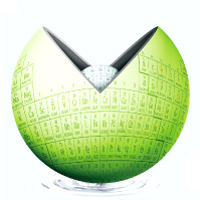
Published for geochemistry community from Geochemical Society of Japan.
Evaluation of geochemical processes affecting groundwater chemistry based on mass balance approach: A case study in Namwon, Korea
Geochemical Journal, Vol. 39, No. 4, P. 357-369, 2005
ABSTRACT
This study shows that the role of various geochemical processes regulating groundwater chemistry can be effectively evaluated using a simple mass balance approach. The application of this approach was successful in a case study on a predominantly agricultural area (Namwon, Korea). For this study, a total of 279 groundwater samples were collected from 93 wells distributed over the study area and analyzed for pH, alkalinity, major cations (Ca2+, Mg2+, Na+, K+), major anions (NO3-, Cl-, SO42-), and silica. Nitrate, chloride, and sulfate concentrations point to the influence of anthropogenic activities on the groundwater composition. Increasing concentrations of major anions and cations toward the top of the aquifer suggests that they come mostly from surface sources. Mass balance analysis based on reaction stoichiometry reveals that the water chemistry is regulated primarily by the combination of three processes: (1) the weathering of minerals such as silicates, carbonates, and/or lime; (2) the input of Cl/SO4 salts; and (3) the generation of nitrates (through nitrification and/or aerobic decomposition of organic matter). Based on this mass balance analysis, we could also quantify the contributions of each process to the observed water chemistry. The results show that mineral weathering is the predominant process affecting groundwater chemistry. Groundwaters more influenced by anthropogenic activities generally show the larger effect of mineral weathering, suggesting that (1) the weathering of silicates might be triggered by protons generated from nitrate generation and/or (2) the water chemistry is affected by lime (CaO) applied to cultivated land and/or carbonates (i.e., CaCO3) in cement materials. However, the influence of protons, which can be co-produced with nitrate, on concentrations of major cations and alkalinity due to ion exchange were revealed to be negligible because the studied groundwater has sufficient alkalinity to neutralize those acids.KEYWORDS
mineral weathering, nitrate generation, salts, proton exchange, mass balance, Namwon- Published : 2005
- Released on J-STAGE : -
- Received : 2004/08/24
- Accepted : 2005/03/15
- DOI : https://doi.org/10.2343/geochemj.39.357
- J-STAGE URL : https://www.jstage.jst.go.jp/article/geochemj/39/4/39_4_357/_article/-char/ja
- J-Online ISSN: 1880-5973
- Print ISSN : 0016-7002
- ISSN-L : 0016-7002
All Issues
- Vol.59, 2025
- Vol.58, 2024
- Vol.57, 2023
- Vol.56, 2022
- Vol.55, 2021
- Vol.54, 2020
- Vol.53, 2019
- Vol.52, 2018
- Vol.51, 2017
- Vol.50, 2016
- Vol.49, 2015
- Vol.48, 2014
- Vol.47, 2013
- Vol.46, 2012
- Vol.45, 2011
- Vol.44, 2010
- Vol.43, 2009
- Vol.42, 2008
- Vol.41, 2007
- Vol.40, 2006
- Vol.39, 2005
- Vol.38, 2004
- Vol.37, 2003
- Vol.36, 2002
- Vol.35, 2001
- Vol.34, 2000
- Vol.33, 1999
- Vol.32, 1998
- Vol.31, 1997
- Vol.30, 1996
- Vol.29, 1995
- Vol.28, 1994
- Vol.27, 1993
- Vol.26, 1992
- Vol.25, 1991
- Vol.24, 1990
- Vol.23, 1989
- Vol.22, 1988
- Vol.21, 1987
- Vol.20, 1986
- Vol.19, 1985-1986
- Vol.18, 1984
- Vol.17, 1983
- Vol.16, 1982
- Vol.15, 1981
- Vol.14, 1980
- Vol.13, 1979
- Vol.12, 1978
- Vol.11, 1977
- Vol.10, 1976
- Vol.9, 1975
- Vol.8, 1974
- Vol.7, 1973
- Vol.6, 1972-1973
- Vol.5, 1971
- Vol.4, 1970-1971
- Vol.3, 1969-1970
- Vol.2, 1968
- Vol.1, 1966-1967
Current Issue:
Stats:
Impact Factor: 1.6 (2024)
Submission to final decision: 9.6 weeks (2022)




